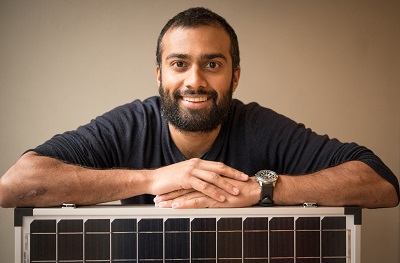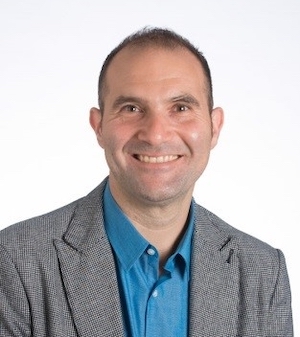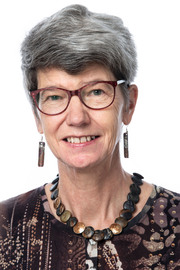Public lecture: Renewing the social contract for interacting with the grid

The Melbourne Energy Institute hosted a public lecture by Dr. Niraj (Nij) Lal, who discussed the research behind his recent DER Bill of Rights and Responsibilities paper, and Professor Pierluigi Mancarella, who discussed some of the key socio-techno-economic findings of the Project EDGE trial of DER orchestration.
ABOUT
Rooftop solar panels have transformed Australia's energy mix, supplying up to close to 100 percent of electricity demand in South Australia and a quarter of the east coast's demand. This change is reshaping the energy market and grid, with solar curtailment and emergency backstop measures having financial implications for solar owners, non-owners, and grid operators.
As more Australian households adopt distributed energy resources (DER), particularly in the form of rooftop solar PV and soon batteries and electric vehicles (EVs) too, our “social contract” for connecting to and interacting with the grid must evolve. The outdated 19th-century model no longer fits, and we require a new agreement that is fair for both solar (and battery and EV) owners and non-owners.
At this event, Nij discussed his recent DER Bill of Rights and Responsibilities paper, which aimed to support sector reform by outlining fairness principles and proposing a framework for grid connectivity. Drawing on powerful analogies, Nij explained that while individuals could unconstrainedly self-consume the energy they produced, selling energy to the grid should come with certain responsibilities.
Pierluigi then presented insights from the ARENA-funded Project EDGE, which successfully demonstrated how a DER marketplace could be developed to interact with the wholesale energy market and without breaching local network limits. In doing so, it was critical to understand the concept of fairness and its broader impact on the community when distribution companies set time-varying export or import limits for DER at the customer’s connection point.
This event was moderated by Professor Fiona Haines.
RECORDING AND SLIDES
SPEAKERS

Dr. Niraj (Nij) Lal
Principal at AEMO
Visiting Fellow at the ANU
Dr Niraj (Nij) Lal graduated with a PhD in physics from the University of Cambridge as a Gates Scholar in 2012, was a Renewable Energy Lecturer at the ANU from 2012–2015 and was named one of the ABC’s Top 5 Scientists Under 40 in 2016. He received the Australia Museum’s Celestino Eureka Prize for Promoting Understanding of Science in 2021 and the Royal Societies of Australia and New Zealand Piasecki Prize for Outstanding Writing on Social Change in 2022, and regularly presents on ABC television and radio. He is a Senior Member of the IEEE, Visiting Fellow at the ANU, Principal at AEMO and an academic expert for the International Energy Agency PV Task 14 Program “High penetration of PV systems in electricity grids”. nirajlal.org

Professor Pierluigi Mancarella
Energy Systems Program Leader
Melbourne Energy Institute
Pierluigi Mancarella is the Chair Professor of Electrical Power Systems at the University of Melbourne, Australia, and Professor of Smart Energy Systems at the University of Manchester, UK. His key research interests include techno-economic modelling and analysis of multi-energy systems, grid integration of renewables and distributed energy resources, energy infrastructure planning under uncertainty, and security, reliability, and resilience of low-carbon networks.
Pierluigi is the Energy Systems Program Leader at the Melbourne Energy Institute, a Fellow of the IEEE (Institute of Electrical and Electronics Engineers), an IEEE Power and Energy Society Distinguished Lecturer, the Convenor of the CIGRE (International Council of Large Electric Systems) C6/C2.34 Working Group on “Flexibility Provision from Distributed Energy Resources”, holds the 2017 veski innovation fellowship for his work on urban-scale virtual power plants, and is a recipient of the international Newton Prize 2018 for his work on power system resilience in Chile. He is author of several books and over 300 research papers and reports, and is a Senior Editor of the IEEE Transactions on Power Systems, and the Oxford Open Energy journal.
Pierluigi is the Australian principal investigator of the US-UK-Australia Global Center in Climate Change and Clean Energy “EPICS” (“Electric Power Innovation for a Carbon-free Society”). In the past few years, he has supported the Finkel Review panel, the Australian Energy Market Operator, the Australian Energy Market Commission, and the Australian Energy Regulator on relevant research and consultancy projects on power system security, reliability, and resilience, and has led and been involved in several projects via the Australian Renewable Energy Agency, Cooperative Research Centres, and the Commonwealth Scientific and Industrial Research Organisation.
MODERATOR

Professor Fiona Haines
Professor of Criminology, School of Social and Political Sciences
University of Melbourne
Fiona Haines is Professor of Criminology in the School of Social and Political Sciences at the University of Melbourne, Honorary Professor at the Regulatory Institutions Network at ANU and Fellow of the Academy of Social Sciences in Australia. Her research, which encompasses work on industrial disasters, grievances and multinational enterprises, centres on white collar and corporate crime, globalisation and regulation.
She is an internationally renowned expert in the area of regulation and compliance with published work in the area ranging from industrial disasters, occupational health & safety and financial fraud to the impact of criminalisation of cartel conduct and the capacity of new governance to resolve issues of human rights violations associated with the activities of multinational corporations. Through this diverse work she explores the way context and place affect the nature and effectiveness of regulation to resolve business harm. She was recipient of the 2018 International Scholar Prize awarded by the US Law and Society Association.
Her books include The Paradox of Regulation: what regulation can achieve and what it cannot (Edward Elgar, 2011) and Regulatory Transformations: Rethinking Economy Society Interactions, (Hart Publishing), 2015, co-edited with Bettina Lange and Dania Thomas. Her major current research projects include an analysis of how to hold multinational corporations accountable for human right's abuse, the social impact of coals seam gas exploration and rethinking regulation in an ecologically constrained world.